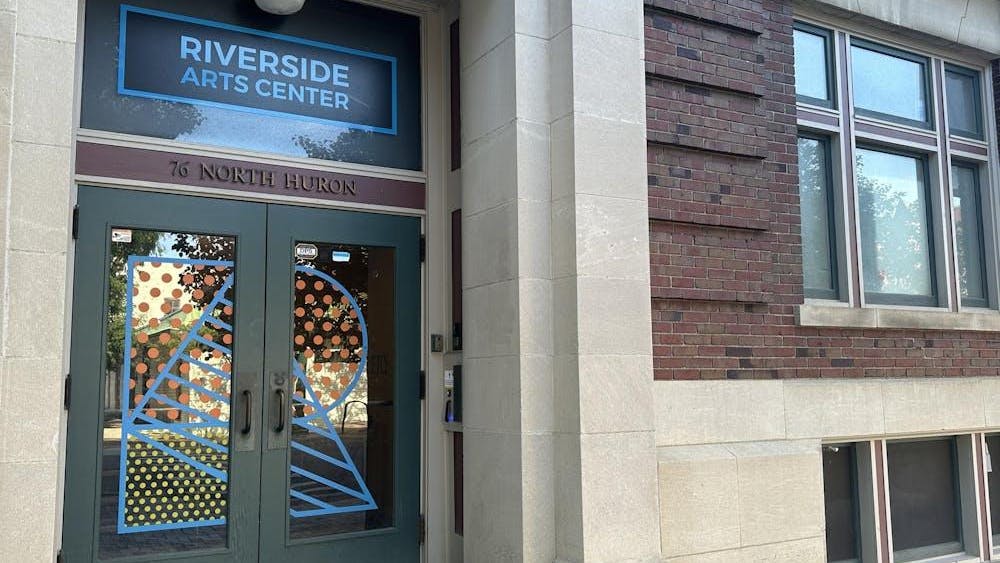The Muslim Student Association of Eastern Michigan University hosted a remarkable event for women everywhere Monday evening.
It was called “An Azizah Event: An Evening of Empowered Voices,” and it highlighted the accomplishments of Muslim women in Michigan, in addition to the four speakers.
Since it is Women’s History Month, women came eager to learn about the Muslim women – whether for class credit or just out of interest.
Each of the speakers talked a little about themselves and what they thought it meant to be a Muslim woman in America.
The first speaker was Naja Bazzy, who is founder of the social work organization called Zamzam International.
Bazzy spoke of herself, growing up in a Western society.
“I come from a very vocal family,” she said.
Indeed, she was raised to believe women are no less than men and being a girl did not exclude her from certain activities or events. She got a little tearful when speaking of her father, who recently passed away, saying he was the one who encouraged her to do whatever she wanted—no matter her gender.
Keynote speaker Tayyiba Taylor, editor of the largest Muslim women magazine, called “Azizah,” focused more on “Azizah” magazine and how it was established and how it thrived over the past couple years.
She brought out many women, such as Jamilah Kolokotronis, author of a Muslim teen series; Dalia Mujahid, appointed by president Obama as advisor on Muslim Affairs; and Zarqa Nawaz, creator of the Canadian TV show “Little Mosque on the Prairie.”
Taylor says Azizah recognizes those women who have worked so hard.
In fact, she said, “Being visible…gives us an opportunity to be who we are.”
“I love being reminded that wearing a headscarf does not limit you and being reminded of that by hearing about the achievements of other Muslim women was inspiring,” said Sakina Alem, a masters student studying cell and molecular biology.
The next speaker, or rather poet, Arwa Alsamarae—who is a senior University of Michigan student—gave everyone a boost in their confidence with her spoken-word form of poetry.
Her first piece put a smile on every woman’s face, especially since Alsamarae was speaking of the beauty of girls, which comes not from make-up, but from who you are.
“I love myself,” is how she started the poem, and went on to say why.
She read another more political piece, while the third was more about herself.
And finally, the last one addressed unity and how every one should unite, and how ethnicity doesn’t matter when it’s a common cause.
“Make unity more than just a word,” is how she put it.
The last speaker of the night was EMU Graduate School alumna Hodan Said, who spoke on social work.
Said talked more about her struggle as a Muslim Somali growing up in America.
Growing up, she was somewhat confused of her identity. Was she an American, a Somali, a Muslim or all of them?
She spoke of deciding to wear the Hijab (Muslim headscarf) and getting the right support form her family and friends.
“Hearing it from your parents or aunties is different from hearing it from your peers,” she said on encouragement to wear the hijab.
However, she goes on to say, once she knew who she was—a Muslim, which is her number one identity—she felt better and knew exactly what she was doing.
Kaitlyn Hill, a freshman studying international affairs, said, “I really didn’t know a lot about Muslim women except from what the media says…it was great finding out it wasn’t true.”
Hill came to the event after seeing the flyer on the bulletin board, and when her professor offered some extra credit for attending.
Most, if not all, the women in attendance left with smiles on their faces, whether from the speakers who inspired them to reach for the stars, or because of the dinner served.
Hani Mohamud, a junior studying biology and advisory board member said: “The event went so well, all thanks to God. Our speakers appropriately shared with the audience the struggles young and old Muslim women face here in the United States. As Najah Bazzy put it, ‘we want to be judged for what’s in our head, not on it.’ ”









